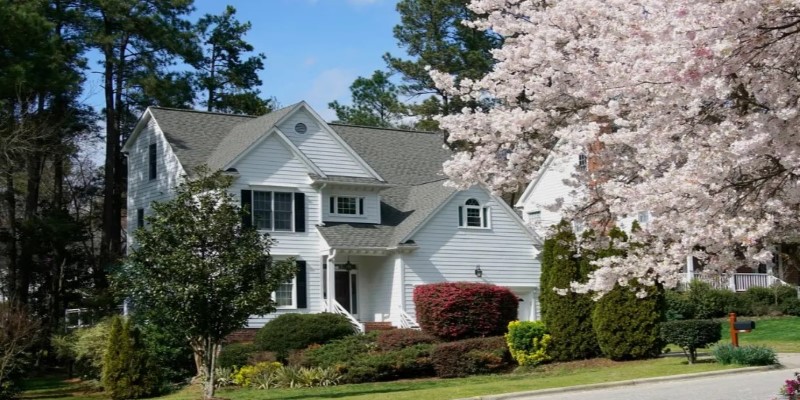Buying your first home in North Carolina can be exciting yet daunting. Thankfully, the state offers several programs to make homeownership more affordable and accessible. These 2024 first-time home buyer programs provide financial assistance, lower interest rates, and down payment support, helping turn the dream of homeownership into reality.

Whether you're seeking lower mortgage rates or need help with a down payment, understanding these options can make a big difference. This article covers the key North Carolina programs, what they offer, and how to apply to find the best fit for you.
The state of North Carolina recognizes that buying a home is a major financial milestone, and many first-time buyers face hurdles like saving for a down payment or securing favorable mortgage terms. This is where first-time home buyer programs come in. These initiatives are designed to make homeownership more affordable by providing financial aid, tax credits, and support in overcoming common barriers.
Some programs focus on reducing the financial strain of down payments, while others offer long-term assistance through mortgage rate reductions or tax savings. The main keyword for these programs is "accessibility," which means helping buyers enter the housing market, often with reduced up-front costs.
First-time home buyers in North Carolina have a range of programs designed to ease the process of purchasing a home in 2024. From down payment assistance to competitive mortgage rates, these programs aim to make homeownership more affordable and accessible. Whether youre exploring state initiatives like the NC Home Advantage Mortgage or federal options like FHA loans, understanding these resources can help turn your dream of owning a home into a reality.
The North Carolina Housing Finance Agency (NCHFA) plays a significant role in supporting first-time buyers in the state. The NCHFA offers several key programs tailored to meet the needs of various home buyers, especially first-timers.

One of their flagship programs is the NC Home Advantage Mortgage. This program is available to both first-time and repeat home buyers but is especially beneficial to those entering the market for the first time. It provides competitive, fixed-rate mortgages with down payment assistance of up to 3% of the loan amount. The best part? You dont have to repay the down payment assistance if you remain in the home for at least 10 years. This makes it an ideal choice for those who might struggle with saving for a down payment.
In North Carolina, first-time homebuyers can access federal programs to ease the path to homeownership. The Federal Housing Administration (FHA) loan is popular for its low down payments and flexible credit score requirements, making it ideal for buyers with limited savings or less-than-perfect credit.
Another option is the U.S. Department of Agriculture (USDA) Rural Development Loan, which offers 100% financing for homes in eligible rural areas, common in many parts of the state. USDA loans also come with competitive interest rates, making them a strong choice for buyers seeking homes in rural or suburban communities.
One of the most significant hurdles for first-time home buyers is saving enough for a down payment. North Carolina recognizes this and offers multiple down payment assistance options that can help reduce the burden.
As mentioned earlier, the NC Home Advantage Mortgage includes down payment assistance of up to 3% of the loan. This is a forgivable loan, provided the homeowner remains in the property for 10 years. For those who meet specific income requirements, the NC 1st Home Advantage Down Payment program can provide up to $15,000 in down payment help. These funds dont need to be repaid unless you sell the home or refinance within a certain time frame.
For first-time home buyers looking to save even more, the Mortgage Credit Certificate (MCC) program is worth exploring. Offered through the North Carolina Housing Finance Agency, the MCC allows buyers to claim a portion of their mortgage interest as a tax credit on their federal taxes.
While this program doesn't directly reduce your mortgage payments, it can provide long-term savings by reducing the amount of income tax you owe each year. Over the life of a 30-year mortgage, the MCC can result in significant tax savings. This is a great tool for those looking to lower the overall cost of homeownership without adding additional upfront costs.
Each program has its own set of qualifications, and it's essential to understand these before applying. For most programs, youll need to meet certain income limits, which vary depending on the program and the location of the home. Additionally, many programs require buyers to complete a homeownership education course, which helps ensure that you are well-prepared for the financial responsibilities of owning a home.

Credit score requirements also vary. For example, the NC Home Advantage Mortgage requires a minimum credit score of 640. However, some programs, such as FHA loans, may accept lower scores if you meet other criteria.
Applying for these programs is straightforward, though it does require some preparation. First, you'll need to gather financial documents such as your tax returns, bank statements, and pay stubs to demonstrate your income and ability to repay the loan.
Youll also need to find a lender who participates in these programs. Many banks and mortgage companies throughout North Carolina are approved to offer state and federal first-time home buyer programs. Working with a lender who understands the specific requirements of these programs can make the application process smoother.
Buying your first home is a major life event, and while it can seem overwhelming, North Carolinas first-time home buyer programs make the process more accessible. Whether you need help with a down payment, want to take advantage of tax credits, or simply need a lower mortgage rate, theres likely a program suited to your needs.
Taking the time to explore these options and understanding whats available to you is a crucial step toward securing a home in 2024. With the right program, that dream home could be closer than you think.

By Isabella Moss/Oct 15, 2024

By Madison Evans/Oct 24, 2024

By Korin Kashtan/Sep 20, 2024

By Vicky Louisa/Oct 08, 2024

By Darnell Malan/Oct 10, 2024

By Susan Kelly/Oct 08, 2024

By Susan Kelly/Oct 20, 2024

By Nancy Miller/Oct 15, 2024

By Jennifer Redmond/Sep 27, 2024

By Jennifer Redmond/Oct 17, 2024

By Juliana Daniel/Oct 16, 2024

By Alison Perry/Sep 20, 2024